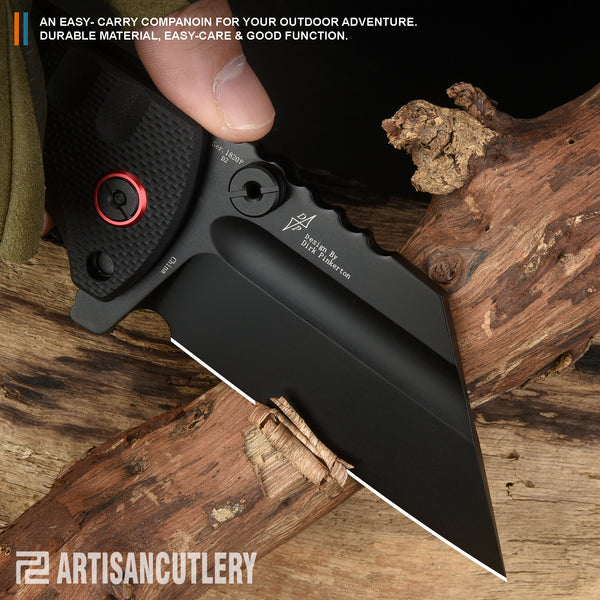The Importance of Pocket Knife Safety
When it comes to pocket knives, safety should always be the top priority. Whether you are an outdoor enthusiast, a handyman, or simply someone who appreciates the convenience of a pocket knife, understanding the essential tips and best practices for pocket knife safety is crucial. By following these guidelines, you can ensure that you and those around you stay safe while using pocket knives.

Choosing the Right Pocket Knife
Before diving into the safety tips, it's important to choose the right pocket knife for your needs. There are various types of pocket knives available, each with its own features and uses. Consider factors such as blade length, locking mechanisms, and handle materials. Research different options and read reviews to find a pocket knife that suits your requirements and preferences.
Proper Handling and Grip Techniques
One of the fundamental aspects of pocket knife safety is learning how to handle and grip the knife correctly. Always hold the knife with a firm grip, ensuring that your fingers are away from the blade. Avoid placing your fingers on the blade's edge or in the path of the blade when closing it. Practice opening and closing the knife smoothly and securely to minimize the risk of accidents.
Maintaining a Sharp and Clean Blade
A sharp and clean blade is not only more efficient but also safer to use. A dull blade requires more force to cut, increasing the chances of slips and accidents. Regularly sharpen your pocket knife using appropriate sharpening tools. Additionally, keep the blade clean and free from dirt, debris, and moisture. This helps maintain the knife's functionality and reduces the risk of rust or corrosion.
Safe Storage and Carrying
When not in use, it is essential to store your pocket knife safely. Choose a storage option that keeps the knife securely in place, such as a sheath or a dedicated pocket in a backpack. Avoid leaving the knife loose in your pocket or bag, as it can accidentally open and cause injuries. When carrying a pocket knife, ensure it is properly closed and secured to prevent accidental openings.
Conclusion
By following these pocket knife safety tips and best practices, you can enjoy the convenience and utility of a pocket knife while minimizing the risk of accidents. Remember to always prioritize safety, choose the right knife for your needs, handle it properly, maintain a sharp blade, and store and carry it safely. With these precautions in mind, you can confidently use a pocket knife in various situations.





